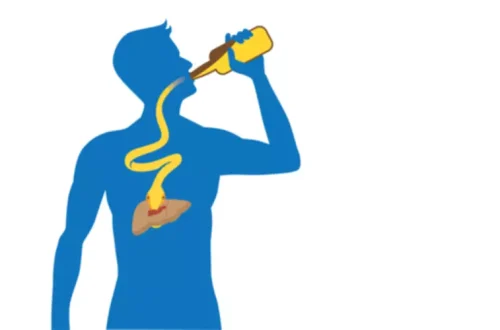Addiction Treatment Going Back to Rehab Does Not Mean You Failed

Aspects of your physical, mental, and spiritual recovery are discussed, including healing relationships, taking better care of yourself, and finding new ways of living. If you’ve experienced a relapse and are ready to seek treatment, American Addiction Centers’ (AAC) admissions navigators can discuss your treatment options with you. Alcohol.org is a subsidiary of AAC, a nationwide provider of addiction treatment services. Take action as soon as possible to get back on the path to recovery. It’s never too late to help someone with a substance use disorder.
Take Good Care of Yourself: Physical Health

Ensure that you have a balanced mix of work, household chores, activities and social engagements to keep you occupied. Staying busy (but not overwhelmed) will help to keep your mind focused going back to rehab on productive activities and away from negative feelings. Too much free time can promote feelings of depression, anxiety and even start to induce cravings. Whether you’re returning to school or work, it’s important not to jump back into a full workload right away. Taking on too much responsibility right after leaving rehab can cause stress.
The Emotional Stage of Relapse
- But the reality is that 18-26% of people who seek treatment for a substance use disorder will eventually readmit to rehab.
- Figuring out what to bring to drug and alcohol rehab can ensure not only that your stay is as comfortable as possible but also that you’re well prepared for the treatment experience.
- Although this statement may feel discouraging, this perspective is a tool that can help you control your addictive patterns.
- A relapse occurs when someone with a previous addiction (usually to drugs or alcohol) starts using again.
Relapse rates for addicts range from 50% to 90% in those volatile first four years of recovery. Many addicts are unaware of this fact and feel intense guilt and remorse when they “slip” and use. It’s natural to be alarmed about a slip, and it’s always wise to immediately seek out the help of your support group, meetings, and a counselor after a slip. Whether or not you should go back into rehab immediately following a slip is a debate that has probably been on the mind of just about every addict who’s ever slipped and immediately regretted it.
Working with a Recovery Coach
This type of transitional residence provides support to people just getting out of treatment. Dr. Saman is a mental health writer with over six years of experience in freelance writing, editing, and proofreading. She is a practicing healthcare professional holding a doctorate in physical therapy at DOW University of Health Sciences. Dr. Saman started content writing to blend her passion for writing and medicine with her extensive clinical experience. Outpatient treatment may be needed to end the recurrence pattern if the patient comes from a supportive family and has a stable living situation at home. In addition, some rehabilitation centers provide booster sessions, which may be helpful for those who have reverted after receiving care.
- Volunteer to help seniors, homeless people, youth or adults with developmental disabilities.
- This is only one of many reasons why it’s important, throughout your time of healing, to be completely transparent in all your interactions.
- Some facilities might also recommend items related to their amenities.
- Readmission is the best option for someone in the pre-physical stages of relapse, and returning to rehab before or after a relapse is the safest, most responsible action you can take for yourself.
- If you relapse and begin using drugs again, you may attempt to use the same amount of a substance that you could handle before getting sober.
- Returning to treatment with an open-mind provides the opportunity to try a new approach for sustaining recovery.
- But going to treatment means entering an unfamiliar space at a vulnerable time.

Try not to assume that because you’ve relapsed that treatment doesn’t work or that you’ve reached the end of the road. Instead, recognize it as a sign that some more work needs to be done and embrace it as an opportunity for continued self-improvement. In fact, as time goes on and these associations are strengthened, dopamine release will increase in response to these environmental drug cues and may be accompanied by strong cue-dependent cravings. Uncover drug rehab success rates, define treatment success, review addiction stats, and learn if relapses mean failure.
IS IT A SLIP OR A RELAPSE?

By becoming self-aware, you’ll have a better idea of how to change or shift behaviors through the help of the tips below. By acknowledging that these are all normal feelings people face when transitioning after rehab, you can start to accept these challenges and prepare to deal with them. Relapse can happen for a number of reasons and going back to rehab opens the door to improve the recovery plan and take new steps towards sobriety. Leaving rehab marks the beginning of a lifelong journey towards recovery and getting back on your feet.
What Percentage of Alcoholics Recover and Stay Sober?
If you’re back using again every day, unable to stop, finding yourself in the same situation you were in before going to treatment the first time, it’s time to consider going back into rehab seriously. Wanting to get help early into a relapse saves many addicts from the same horrors that they got sober from. Addiction relapse is a challenging and emotional experience but it does not have to define your recovery journey. By understanding the common triggers, recognizing the warning signs, and implementing effective strategies, you can take proactive steps to prevent relapse and maintain your hard-earned sobriety.
Is It Ever Too Late to Help Someone with a Substance Use Disorder?
You can also consider returning to school or pursuing a new career path aligned with your values and passions. Meaningful work adds structure to your days and can deeply contribute to your life satisfaction. As you discover new interests and heal relationships, consider how your unique strengths and experiences can serve a greater purpose.
Be cautious of getting too overconfident and letting these priorities slip as this is what often triggers a relapse. Remember to set yourself a daily intention that will guide you on the path of recovery and keep you focused on your priorities. Whenever faced with a decision, you should determine whether it aligns with your recovery priorities. If it doesn’t, then avoid those types of activities and pursue healthy ones instead.
- There are several factors that you should consider before deciding where to live after completing a treatment program for a substance use disorder.
- Obviously, if you have never experienced for yourself or known someone who has gone to rehab, you aren’t sure what to expect.
- This fear is common, but by looking at the sober community, you can see that those thoughts are not true.
Rehab Services at American Addiction Centers
Giving into a drug craving can feel like the end of the world but it’s important to recognize that relapse is not a failure, but rather a natural part of the addiction recovery journey. Despite what outdated misconceptions might have you believe, addiction is not a lack of willpower but a chronic condition — and just like any other chronic illness, setbacks can occur. Here are 4 things to do to get back on track after an addiction relapse. Another study found that individuals who completed treatment at facilities that offered shorter programs had higher rates of relapse,5 so perhaps you need a longer stay this time around. Since there is no “cure” for addiction and because those in recovery sometimes encounter setbacks, you may find yourself entering rehab a second, third, or fourth time.
